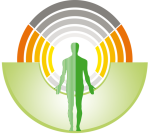What is MRI?
MRI, or Magnetic Resonance Imaging, is one of the most advanced medical imaging techniques. This method enables the visualization of internal body tissues and helps diagnose issues and diseases of body organs.
The Philips Ingenia CX MRI machine available at Tabesh Medical Imaging Center is one of the most advanced 1.5 Tesla MRI devices, produced by Philips.
This device has the most uniform magnetic field throughout its tunnel, allowing specialized imaging such as MR Angiography, Spectroscopy, Fat-suppression, and advanced sequences such as DWI, SWI, GRE, etc., to be performed with exceptional speed, precision, and quality.
It is capable of carrying out all specialized and sub-specialized requests for all body organs with the highest image quality.
How is MRI performed at Tabesh Center?
1. Before the MRI Procedure
Depending on the type of MRI service requested by your physician, you may need to follow certain instructions. These instructions can be found on the MRI preparation page.
Instructions regarding eating and drinking vary for different types of MRI scans. If your MRI is without contrast injection, no special preparation is needed, and you can continue your daily routine and take your usual medications.
For MRI with contrast, you must refer to the MRI preparation page to follow the required steps.
In such cases, you will be asked about allergies, history of drug or food sensitivities, and kidney or liver problems. These questions are included in a questionnaire that you must complete and submit to the MRI reception desk.
Before the MRI, you will be asked to go to the designated changing rooms and wear the provided disposable gown.
2. MRI Experience
An MRI machine looks like a tunnel that is open at both ends. You will lie on a table that moves into the tunnel. A technician monitors you closely and you can speak to them through a microphone.
The MRI machine creates a strong magnetic field around you and directs radio waves toward your body. You will not feel the magnetic field or radio waves, and there are no moving parts around you.
During the MRI scan, the machine produces knocking and repetitive sounds. You can request your favorite music to be played via the headphones provided to make the experience more comfortable.
In some cases, a contrast agent (usually gadolinium) is injected through an IV catheter into your hand or arm. This helps enhance image clarity and detail. Gadolinium rarely causes allergic reactions.
The MRI exam may last from 5 minutes to over an hour. You must remain completely still during the scan, as movement may blur the images.
3. MRI Restrictions
The following items should not be brought into the MRI room:
Mobile phones, jewelry, watches, credit cards, hearing aids — these items may be damaged.
Pins, hairpins, metal zippers, or similar metal objects — they can distort the MRI images.
Removable dentures and prosthetics.
Pens, pocket knives, and eyeglasses.
Body piercings.
Individuals with the following implants should NOT enter the MRI room:
Defibrillators or cardiac pacemakers
Ear implants
Certain brain aneurysm clips
Some types of artificial heart valves
Implanted drug infusion ports
Implanted nerve stimulators
If you have any implanted medical or electronic devices, inform the MRI technician, as they may interfere with imaging or pose safety risks.
A pre-MRI X-ray may be required for patients suspected of having metal objects in specific body parts.
Tattoo pigments containing iron may heat up during the MRI scan, but this is rare.
Dental and eyebrow fillings are usually unaffected by magnetic fields but may interfere with face or brain imaging. Therefore, it’s important to inform the MRI technician if you have any.
FAQ
No, undergoing an MRI is completely safe and there is no reason to worry.
If you feel slight warmth in the part of your body being scanned, don’t worry — this is normal. However, if the warmth increases, notify the MRI technician. It is essential to remain completely still during the imaging process.
For some types of MRI scans, you may be asked to hold your breath. You will be informed when the images are being captured.
If necessary, and with the technician’s approval, you can have a companion by your side. However, the MRI technician will be able to communicate with you at all times through a two-way intercom system.
No. Since MRI uses magnetic fields and radio waves — and no ionizing radiation is involved — it is not harmful to the body.

